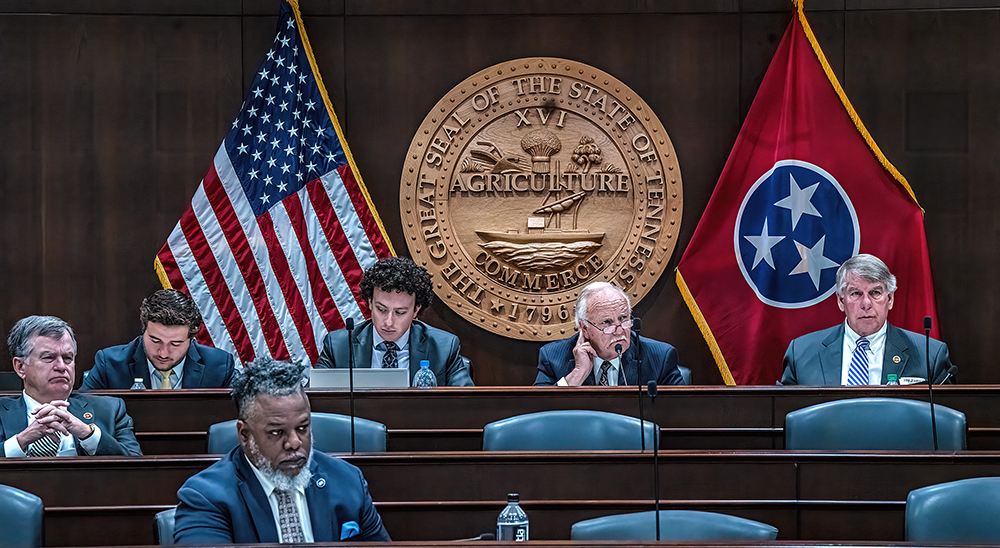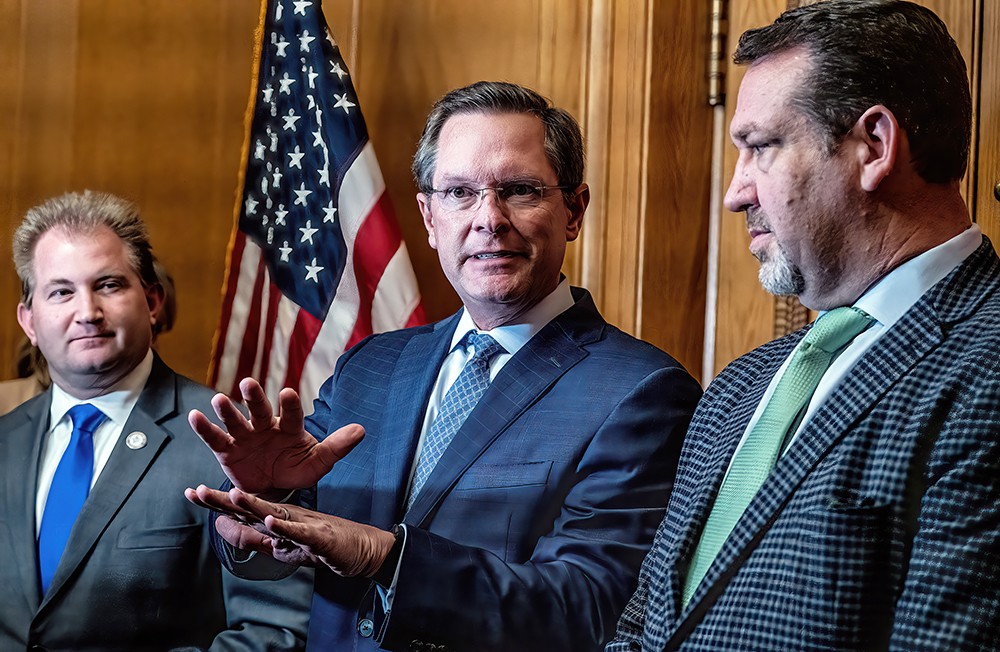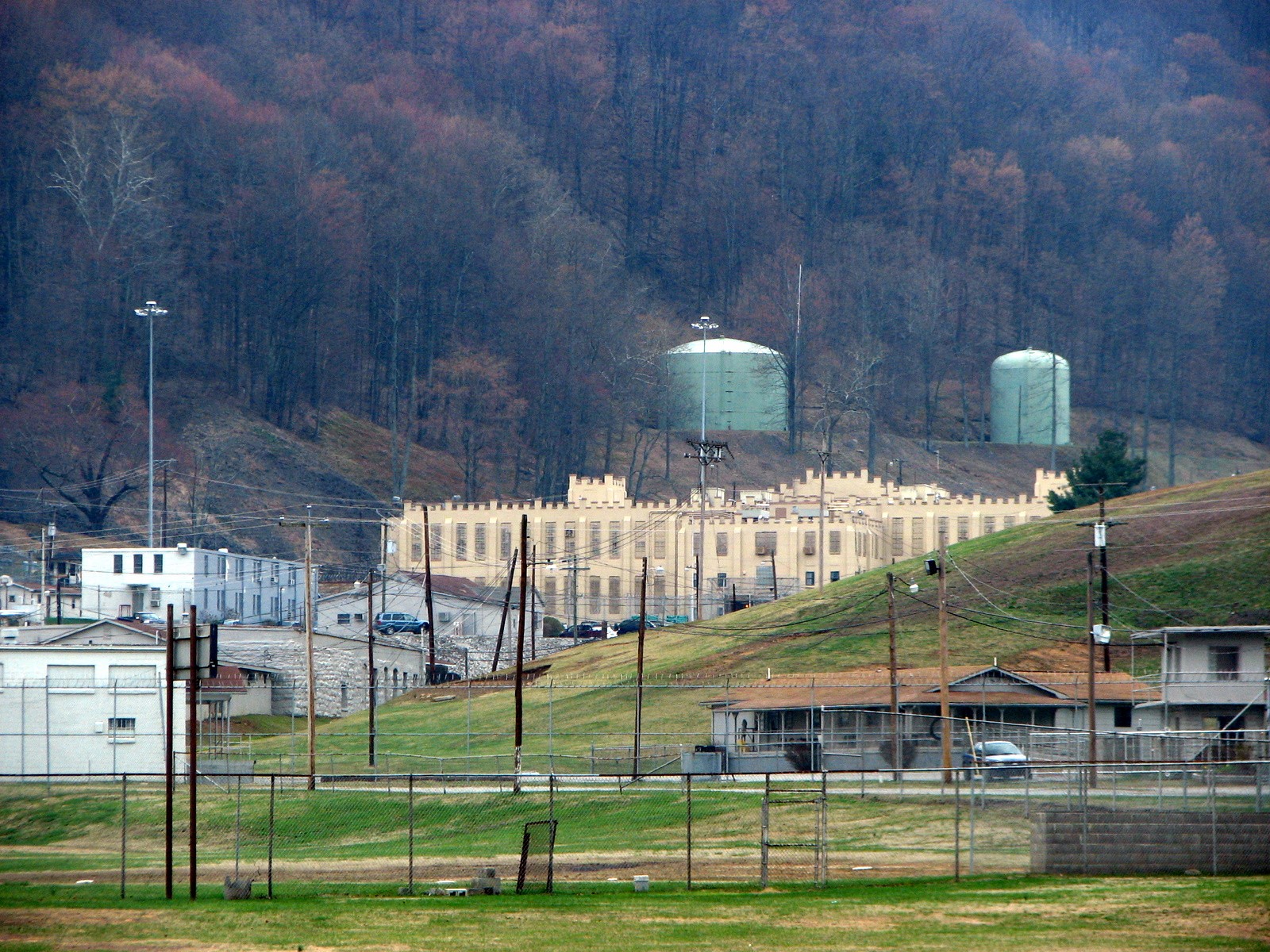As states across the country adopt harsh new sentencing laws, private prison companies are celebrating, telling investors that they soon expect more people in their prisons — and even higher profits.
From Mississippi to California, many states have taken a decidedly “tough on crime” tack over the past two years in a strengthening backlash against criminal justice reform efforts after George Floyd’s murder in 2020. This year, Louisiana passed a package of harsh sentencing laws that will keep some people in prison for years longer. A new parole board in Mississippi is keeping people in prison for longer terms by denying early release. In March, Washington, DC, enacted a sweeping anti-crime package.
These laws, advocates warn, threaten to reverse years of progress in the fight against mass incarceration. Instead, they would again trap people in prison for lengthy terms, ripping apart communities and exacerbating racial and socioeconomic inequality — while enriching the private firms that manage prisons and their shareholders.
Perhaps no state is more emblematic of the recent sentencing crackdown — and the private interests that stand to benefit — than Tennessee, where one of the world’s largest prison companies is headquartered.
Since 2022, lawmakers in Tennessee have fought to enact a slate of harsh sentencing laws that are expected to increase the state’s spending on incarceration by tens of millions of dollars annually. The key power brokers behind the legislation are also some of the top recipients of private prison company cash, The Lever found.
On May 28th, Gov. Bill Lee signed the latest of these proposals into law, a bill that will end the use of so-called “sentence reduction credits,” which allow people incarcerated in Tennessee to serve shorter sentences as a reward for a clean record in prison. The law, which will only apply to future offenses, is projected by the state to result in a “significant increase” in spending on incarceration.
For the people locked up in Tennessee’s prison system, who are disproportionately poor and Black, this will mean, in some cases, that they will spend years longer in a prison cell. There’s little evidence that longer sentences deter crime.
But the law does have at least one key beneficiary: Tennessee’s private prison contractor, CoreCivic, formerly the Corrections Corporation of America, one of the world’s largest prison companies, which will almost certainly see new profits as a direct result of the legislation. The company, which spends millions of dollars a year lobbying both in states and on a federal level, has begun telling its investors that harsh sentencing laws across the country will soon translate to bigger profits from the 70-plus prisons it runs nationwide.
“There has been a fair amount of activity both this year, and really the last two years, within state legislatures on adjustments to sentencing reform,” Damon Hininger, CoreCivic’s CEO, who has political aspirations in Tennessee, said in an earnings call last month.
Hininger said he expected this development to lead to “pretty significant increases” in prison populations — good news for the prison company, which is often paid by how many inmates are housed in prison at a given time. Already, he said, higher occupancy rates in CoreCivic-managed prisons had led to, in turn, “strong financial results” for investors.
Bianca Tylek, the executive director of Worth Rises, an advocacy organization that focuses on the harms of prison industries, called Hininger’s comments “brazen” and proof that the companies “don’t think people are listening.”
“It’s a real travesty that we’re allowing industry to shape what our carceral system looks like,” she said.

“Increased the Sentences Tremendously”
David Raybin, a criminal defense attorney in Nashville, has been fighting for sentencing reform in Tennessee since the 1970s. He has witnessed decades of ebbs and flows in sentencing policies. Yet the crackdown that Tennessee lawmakers have launched over the last two years is like nothing he’s ever seen before. “Over time, it will have an enormous effect,” he said.
In 2022, the Tennessee legislature passed a “truth in sentencing” bill, a sweeping law that essentially rewrote sentencing practices in the state, requiring people to serve, in some cases, up to 10 years longer for certain felony crimes.
“It just absolutely increased the sentences tremendously,” Raybin said.
The 2022 law was just the beginning of Tennessee’s draconian sentencing crackdown. Last year, lawmakers proposed a “three-strike” bill requiring even harsher sentences for people with prior convictions. The legislation passed a key House committee last year but did not reach the governor’s desk, though it has continued to move forward in the Tennessee Senate this session.
Should the three-strike bill ultimately pass, it will require an entirely new prison to be built in Tennessee to house 1,400 more inmates, costing taxpayers at least $384 million.
In May, ignoring the outcry of criminal justice advocates around the state, Lee signed a bill that will largely end early release from prison, which inmates were able to earn through participation in educational programming and maintaining a clean record in the system.
Now, people in Tennessee’s prisons will only be released early on parole, which in the state is rarely granted. The effect will be to “keep people incarcerated longer,” said Matthew Charles, a Nashville-based policy advisor with Families Against Mandatory Minimums, a nonprofit that advocates for more just sentencing reform.
Lee also signed a new law this spring that will impose adult sentences on teenagers after they have served a juvenile sentence, which criminal justice reform advocates say will have “alarming” repercussions for youth in the state.
It will take several years before the full impact of the laws becomes clear as new cases wend their way through the courts.
“It’s not immediate,” said Dawn Deaner, the executive director of the Nashville organization Choosing Justice Initiative. She estimated that it would take more than five years to start to see the full effect of the new sentencing laws.
“But we’re going to see the prison populations grow,” she said.

“The People That Have the Money”
Tennessee is an important state for CoreCivic, as evidenced by the company’s significant lobbying expenditures in the state. The private prison company is headquartered in Nashville, and it has long been one of the state’s biggest political spenders. Since 2009, the company has spent $3.7 million on lobbying and campaign donations in the state, a Tennessee Lookout analysis found.
In response to a request for comment from The Lever, CoreCivic spokesperson Brian Todd wrote the company “supports candidates and elected officials who understand the limited but important solutions our company can provide,” and noted that it employs 1,200 people at its prisons in Tennessee.
Although a Tennessee law from the 1980s mandates that the state have only one privately-run prison, CoreCivic has carved out a loophole after years of attempts to rewrite the law entirely. The company now runs four of the state’s fourteen prisons by routing contracts through counties rather than the state. Together, the value of those four contracts exceeds $200 million.
Lobbying records from last year indicate that CoreCivic has a small army of eight lobbyists working on its behalf in Tennessee’s state house. According to state campaign spending data aggregated by FollowTheMoney.org, Tennessee’s current governor has received the most money from the private prison company of any politician in the nation: $65,400 over the last two election cycles, including donations from company executives, making the company one of his largest donors.
This year, Hininger, CoreCivic’s CEO, who is said to be considering a run for Tennessee governor in 2026, chaired a fundraiser dinner for the state Republican Party and personally gifted each attendee a souvenir glass emblazoned with the state’s Republican Party logo. Hininger himself has donated more than $100,000 to politicians in Tennessee over the years.
Meanwhile, lawmakers who have pushed the slate of harsh sentencing laws in Tennessee have been rewarded.
House Republican Majority Leader Rep. William Lamberth of Portland, a former county prosecutor, has spearheaded the sentencing bills in the state, championing the sweeping 2022 law and sponsoring the more recent bill that did away with early release. “He’s been very active in trying to pass harsher sentencing laws,” Deaner of the Choosing Justice Initiative said.
Lamberth is also one of CoreCivic’s biggest beneficiaries in Tennessee, receiving $8,500 from the company. So, too, are other Republican champions of the sentencing bills, including Lt. Gov. Randy McNally of Oak Ridge, who has received $7,500 from CoreCivic, House Speaker Cameron Sexton of Crossville ($10,000), and Rep. Jerome Moon of Maryville ($3,000).
The money is “absolutely” having an impact on policy, Deaner said.
“Who are the people that have the money in Tennessee?” she said. “Particularly in rural places, there are not a lot of wealthy donors.” In the absence of other campaign funding sources, this state of affairs has allowed CoreCivic to wield an especially significant influence with state lawmakers, she said.
”Driven By Greed”
CoreCivic regularly claims it does not lobby on sentencing-related bills — in Tennessee or elsewhere — and did so again in response to questions from The Lever. “CoreCivic does not lobby or take positions on any policies, regulations or legislation that impact the basis for or duration of an individual’s incarceration,” Todd, the company spokesperson, wrote.
But it’s clear from executives’ statements to investors that they are, at the very least, monitoring these laws closely.
“Going forward, the next three years to five years, a lot of states are looking at pretty significant increases [to prison populations] because, again, of changes, maybe, in sentencing reform,” Hininger said in the May call.
For the first time in a decade, prison populations across the country are rising after a dramatic drop in 2020 during the pandemic, when court backlogs and early releases due to Covid-19 lowered the number of people in prisons. The majority of states have reported an increase in the number of people incarcerated in their prisons over the last two years, according to a study published by the U.S. Department of Justice last November. According to the report, there were currently more than 1.2 million people behind bars — raising the country’s already sky-high incarceration rate.
A significant part of this incarceration surge is the return of normal court systems as judges worked through case backlogs that had persisted through the pandemic. But tough sentencing laws, criminal justice reforms say, also appear to be playing a role.
Prison executives agree. “In conclusion,” Hininger said in May, “the macro environment in which we operate continues to improve.”
The agency found Tennessee is seeing one of the country’s sharpest increases in its prison population — a reported 8 percent surge between 2021 and 2022. Colorado, Montana, and Mississippi all reported incarceration rates growing at 8 percent or above, and another 42 states reported some growth in their prison populations.
Many of CoreCivic’s prison contracts, including in Tennessee, are paid on a “per inmate, per day” basis, meaning that these fluctuations in prison populations directly impact the company’s bottom line. Many of the company’s facilities, its financial statements show, are not at full occupancy levels — and laws that could change this would put money directly into the pockets of prison companies.
CoreCivic’s “unholy alliance,” in the words of one state Democratic lawmaker, with the state of Tennessee illustrates just how greatly private interests are profiting from rollbacks to criminal justice reforms — whether that’s prison companies raking in cash from harsh sentencing laws or the bail industry’s success in Georgia, which reimposed cash bail requirements after experimenting with bail reform, a move that will benefit bail bond agents and insurers.
“This moment is revealing exactly what we’ve known about the carceral system,” Tylek of Worth Rises said. “The expansive use of incarceration as a solution to social failures is driven by greed.”
This article was originally published by The Lever, an investigative newsroom.


